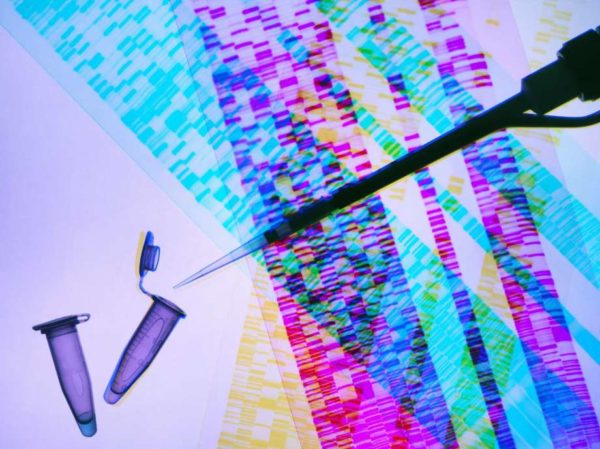
Image 1 of 1
- 23andMe, known for its at-home DNA testing kit, has developed its first based on users’ aggregate DNA profiles.
- This new drug is targeted at the skin condition psoriasis.
- The company used aggregate DNA information from 80 percent of its 10 million users who gave permission for the company to use data for research purposes.
You probably signed up for a 23andMe profile because you wanted to find out where your family is from—not because you wanted to help develop a new drug from your spit.
Of the genetic testing company’s more than 10 million users, a vast majority have consented to have their DNA used in 23andMe’s research endeavors, which includes development of pharmaceuticals. If you’re one of these customers, you may not remember giving the company permission to conduct research with your saliva sample. Or maybe you didn’t read the fine print (23andMe has a separate consent process for research purposes).
If that’s you, turns out you’ve helped create a new drug meant to treat , an autoimmune disease that causes red and scaly patches of skin. According to , 23andMe has sold the rights to that drug to the Spanish pharmaceutical company Almirall.
“Working with Almirall, we’re pleased to be furthering 23andMe’s mission of helping people benefit from genetic insights,” Kenneth Hillan, head of therapeutics at 23andMe, said in a
Did I Sign Up for This?
Nobody likes to read the terms of service for products that they’re using, but when it comes to your own DNA sequence, it’s better to be safe than sorry. While 23andMe has a separate consent process for research purposes, outside the terms of service, there are clues in there.
According to 23andMe, about of users have consented to the firm using their anonymized aggregate data for research, including drug development purposes. That’s a huge swath of health data.
Aggregate data is “data from multiple users that has been combined to minimize the possibility of exposing individual-level information,” 23andMe notes on its website. The company tells Popular Mechanics it only shares summary statistics, “which are stripped of any personal information from analysis we conduct internally.” An example of summarized data, 23andMe says, includes statistics like: “27 of men in their , reporting being in good health, also reported feeling depressed.”
Hey, at least you’ll get a cut of the massive profits that come with developing a new drug, right? Not so much. Per 23andMe’s terms of service agreement:
You understand that you should not expect any financial benefit from 23andMe as a result of having your Genetic Information processed; made available to you; or, as provided in our Privacy Statement and TOS, shared with or included in Aggregated Genetic and Self-Reported Information shared with research partners, including commercial partners.
There are more clues on the company’s website’s customer care section. Filed under “Before You Buy” and “Privacy,” the company includes information on data sharing with 23andMe notes it does not share “individual-level genetic data or survey responses” with third parties without asking for your explicit permission. However, if you’ve given consent to the company to use your genetic data for research, it will be used in aggregate without any identifying information, like your name or other contact information and can be published in scientific journals. That’s the case with this psoriasis drug research.
Still, there’s a caveat even if you didn’t give the company your permission to use your DNA in aggregate: 23andMe says on its website that regardless of your consent status, the company may still include your data in any aggregate data that is disclosed to “third-party research partners” who will not publish that information publicly, such as in a scientific journal. In other words, researchers working with 23andMe can still see your data as part of an aggregate, anonymized dataset. That means it’s nearly impossible to tell exactly what all is being done with your genetic information.
How Do I Opt Out?
To find out if you’ve opted in to 23andMe’s research, log into your account and take a look at your preferences page. Under the research section, you’ll see a summary of what you’ve consented to so far.
In the image below, which 23andMe supplied to Popular Mechanics, you can see there are two possible messages you may encounter: one where you did and one where you didn’t provide consent to its “Research Consent Document.” There, you should see a hyperlink to “change consent” if you’d like to opt in or opt out of the program.
23andMe says that once you’ve opted in to participate in research, you can withdraw at any time. Choosing not to participate won’t impact access to your DNA reports in any way, the company says.














